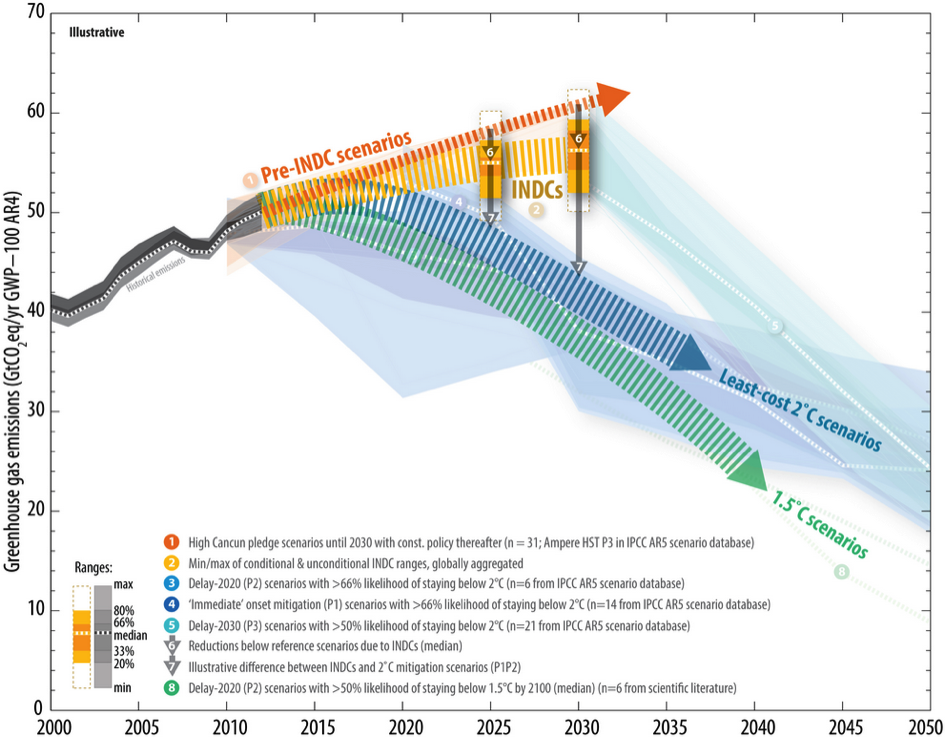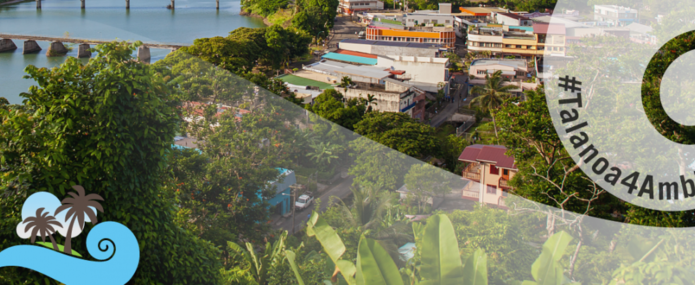Following last week’s framing on the Bonn negotiation session of UN Climate Change, we reflect here on the launch of a yearlong process: the Talanoa Dialogue.
What is the Talanoa Dialogue? In the Paris Agreement’s text, under its original denomination of the “Facilitative Dialogue”, it is primarily a process with two goals: “take stock of the collective efforts of Parties” in relation to progress towards the long-term goal of achieving carbon neutrality, and “inform the preparation of nationally determined contributions” (decision 1/CP.21, paragraph 20). The Fijian presidency has renamed this process Talanoa – in reference to a Fijian traditional discussion mode aimed at resolving tensions – with the purpose to “share stories, build empathy and make wise decisions for the collective good”.
A first technical phase took place last Sunday, and a political phase will involve ministers during COP24. IDDRI took part, joining representatives from all countries and over a hundred organisations – from cities to companies, from research institutions to advocacy NGOs... Participants were split in groups, sat in circles and exchanged short ‘stories’ on current climate efforts, the ambition needed, and both the potential solutions and hurdles that have to be overcome to make it a reality.
Read IDDRI’s contribution to the Talanoa Dialogue:
The Fijian presidency’s primary goal seemed to be to create an atmosphere of openness, empathy, optimism and urgency. On this account, the Talanoa was an undeniable success, through the wide participation of non-state actors, the encouragement to share personal stories and solutions, but also frequent calls to action from all. Countries presented their efforts at the national level, which sometimes kickstarted interesting discussions. In the context of international negotiations, often contentious and bound by diplomatic tactics and postures, changing the mode of work was definitely a challenge, achieved despite original resistance: making countries talk about empathy is in itself no small feat, and many countries said they considered this first phase a success.
However, the first results of this process raise two urgent questions, critical for the long-term success of the Paris Agreement. First, we’re not any closer to defining what ‘collective stocktaking’ should mean. The Talanoa Dialogue should be a building block towards the first Global Stocktake - mandated by the Paris Agreement to take place in 2023 - and an opportunity to start designing what such an exercise might look like. Right now, the Fijian rapporteurs are synthesising over 700 (!) stories, in addition to the 220 written inputs submitted on its online portal to date, mostly from non-Party stakeholders. By its design, one struggles to see how the Talanoa could result in anything more specific than a general call for more action- is that what future stocktakes could look like?
But without a doubt, the most important test of the Talanoa will be around a second question : its capacity to ratchet up ambition. Can the ‘empathy’ generated translate into actual commitments from countries to present revised NDCs by 2020 and increase their ambition?

In discussing Sunday’s Talanoa this week, several countries pointed at the Climate Summit, invited by the UN Secretary General Antonio Guttierez in 2019, as a critical moment for countries to announce their intention to revise their ambition upwards. Before that, the COP24 will open in Katowice, under the presidency of Poland, which has struggled to date to project leadership and present a clear vision. The stakes are high, and the onus is now mostly on Poland, supported by its EU partners, to quickly pick up the baton and ensure the optimism and goodwill created by the ‘Talanoa spirit’ this Sunday translates into increased action.
The COP24 should provide the opportunity for countries to acknowledge that the world has changed since 2014-2015 when they submitted their NDCs, and push them collectively and individually do more. Ministers also have the responsibility to hear this message and translate it at the national level or else these discussions will end up amounting to little more than a ‘spirit’.
Photo credit : UNFCCC



